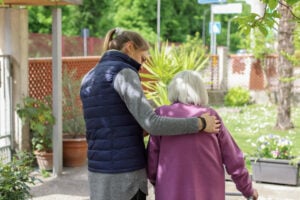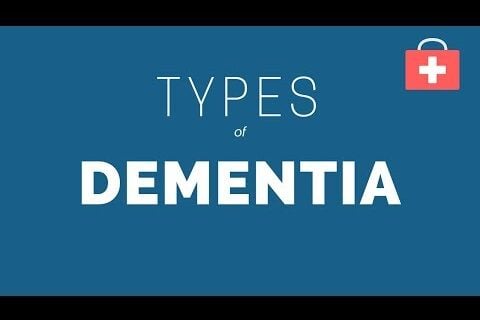The American Geriatrics Society updated recommendations for doctors treating people with dementia. These include adjusting prescriptions of Alzheimer’s drugs if the desired effect is not achieved within 12 weeks. Learn more.
New York, N.Y. —The American Geriatrics Society (AGS) released updates to several of its recommendations for the ABIM Foundation’s Choosing Wisely® campaign. Their mission is to raise professional and public awareness about treatments and tests that may lack efficacy or cause potential harm. The AGS’s updates reflect an expert review of new research on several important conditions impacting older adults. These include agitation, delirium, dementia, insomnia, unintended weight loss, and certain other health concerns. These updates help patients, doctors and carers have deeper discussion based on new insights and information on appropriate healthcare choices.
“Providing high-quality care to older adults means recognizing and responding to the specific, evolving challenges and opportunities that we all face as we age,” said Wayne C. McCormick, MD, MPH, AGSF, President of the AGS. “Since 2012, the AGS and the ABIM Foundation have worked together through Choosing Wisely to synthesize pressing updates from the geriatrics field in a format that is easy to understand—and apply—in everyday practice.”
In this most recent update, the AGS expanded earlier guidance to reflect emerging expert opinion and the latest research insights guiding sound decision making to support elder care:
- The AGS expanded its rationale for recommending against the use of cholinesterase inhibitors (CIs), a class of pharmaceuticals sometimes used to manage dementia, without periodic evaluations to determine mental health benefits and gastrointestinal problems associated with treatment. Although some clinical trials suggest that CIs may improve cognitive testing results, it is now unclear whether these changes are “clinically meaningful” based on available data. Since no studies have investigated the benefits of CIs beyond a year or the risks/benefits of long-term therapy, the AGS expert panel advised that clinicians, patients, and their caregivers discuss treatment goals and the likelihood of adverse effects before beginning treatment, and that they adjust therapy if the desired effects are not achieved within 12 weeks.
- The AGS continues to recommend avoiding antipsychotics as the first-choice treatment for behavioral and psychological symptoms associated with dementia, and its rationale for this guidance has been expanded with new data on nonpharmacologic management of the condition. Specifically, the expert AGS panel determined that antipsychotics provide “limited and inconsistent benefits,” while also posing risks for over-sedation, a worsening of memory problems, and an increased likelihood of falls, strokes, and even mortality.
- Although guidance for choosing alternatives to benzodiazepines and other “sedative-hypnotics” as initial treatment options for insomnia, agitation, or delirium in older adults remains unchanged, this recommendation is now supported by even more—and more recent—scholarship. Large-scale studies reviewed by AGS experts continue to point to significantly elevated risks for motor vehicle accidents, falls/fractures resulting in hospitalization, and even death for older adults taking “psychoactive” medicines like benzodiazepines. These medications may be better utilized for alcohol withdrawal or severe generalized anxiety unresponsive to other therapies.
| Brand Name | Generic Name |
|---|---|
| Aricept® | donepezil |
| Exelon® | rivastigmine |
| Remynil or Razadyne® | galantamine |
These updates add to several other long-standing recommendations available on GeriatricsCareOnline.org and still unchanged following expert review. Additional guidance includes:
- Pursuing oral assisted feeding for patients with advanced dementia instead of a “percutaneous” feeding tube threaded through the skin into the stomach;
- Not using antibiotics to treat patients who have bacteria in their urine (a condition known as bacteriuria) unless certain urinary tract symptoms are present; and
- Conducting a treatment regimen review before prescribing medication.
“As the older adult population in the U.S. continues to grow, it’s so important that geriatrics care principles reflect the latest science, evidence, and advice supporting quality health and care,” said Paul Mulhausen, MD, MHS, FACP, AGSF, who chaired the AGS Choosing Wisely Workgroup responsible for the list. “We are grateful to the ABIM Foundation for this opportunity to share timely recommendations that will help patients avoid unnecessary tests and procedures and support overall well-being.”
Since the inception of the Choosing Wisely initiative in 2012, more than 70 specialty societies like the AGS have contributed recommendations on tests and procedures to question and discuss. The resulting lists have helped patients and health professionals make decisions that are evidence-based, non-duplicative, free from harm, and truly necessary.
About the American Geriatrics Society
Founded in 1942, the American Geriatrics Society (AGS) is a nationwide, not-for-profit society of geriatrics healthcare professionals dedicated to improving the health, independence, and quality of life of older people. Its more than 6,200 members include geriatricians, geriatric nurses, social workers, family practitioners, physician assistants, pharmacists, and internists. The Society provides leadership to healthcare professionals, policymakers, and the public by implementing and advocating for programs in patient care, research, professional and public education, and public policy.
SOURCE:
The American Geriatrics Society












My mom is diagnosed with Dementia/Alzheimer, was given drugs and she began acting strangely at night, yelling, fighting, thrashing around, all while her eyes stayed closed. We couldn't wake her. she fell, had a hip replacement, went to therapy, now in a nursing home. One evening she muttered "that medicine". confused.